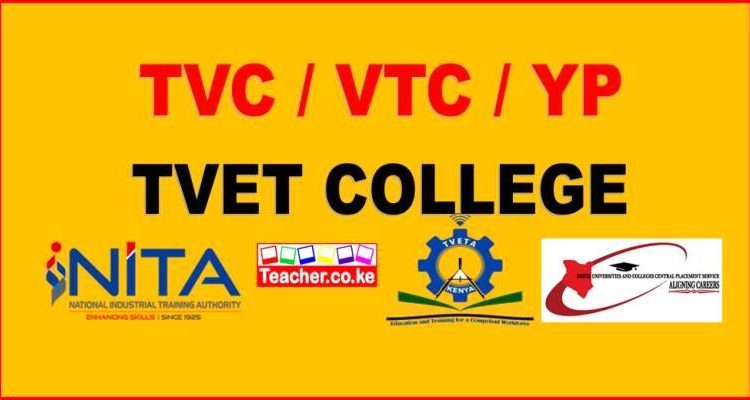Report: 9.1% of students with disabilities get admitted to TVET colleges
The Kenya Universities and Colleges Central Placement Service (KUCCPS) together with the Directorate of Technical and Vocational Education Training has been urged to ensure measures are put in place t enhance the placement of trainees with disabilities in all levels of technical institutions.
Among these institutions that have been urged to enhance the placement of trainees with disabilities are Technical Training Institutes (TTIs), National Polytechnics and Vocational Training Centres.
In a recent Kenya Institute of Special Education (KISE) report titled A Situational Analysis of Inclusive Education Practices in Technical and Vocational Education Institutions in Kenya, it was revealed that around 72.6 get admitted into Technical and Vocational Training (TVET). Most of these trainees are those with learning disabilities and hearing impaired.
According to the survey, 9.1% of students placed in TVETs are those having disabilities. This means that the admission of students with disabilities is not given enough support. It is only those who are capable of making direct applications who are admitted into those institutions.
18.2 per cent of trainees with disabilities get admitted into the institutions via other means. These means include Non-Governmental Organizations (NGOs) in various parts of the country, Faith-Based Organizations (FBOs) and the Community Based Organizations (CBOs).
The report’s survey recommended the creation of awareness among trainers to embrace inclusivity in leadership positions, and governance and encourage trainees with disabilities to vie for leadership positions.
Management of TVET colleges has also been highlighted as a need to eliminate discrimination against trainees with disabilities and create an environment to ensure the trainees participate in governance.
“Only 0.1 per cent of the total enrolment of trainees with disabilities in technical institutions in Kenya, it is important to note that some government programmes such as the National Youth Service (NYS) have increased placement of youth with disabilities into training institutions. For instance, admission of the deaf into technical institutions has increased significantly due to NYS interventions,” reads part of the report.
The report also reveals that 44.4 per cent of TVET institutions have trainees who have disabilities as part of their student council while 55.6 per cent of these colleges do not have trainees who have disabilities as part of their student council.
In addition, 16.7 per cent of TVET colleges have a reserved slot for trainees who have disabilities in their student’s council and 13.5 per cent allows a representation only through being elected by popular vote.
SSme institutions opt to allow students with disabilities to nominate their representatives while in other colleges, the institution’s administration is involved in the nomination of representatives.
According to the report, it is mainly in National Polytechnics and Technical Training Institutions (TTIs) where school administrators nominate a student representative or create a reserved position for students with disabilities.
Special Needs Technical and Vocational Institutions and Technical Training Institutions encourage representation of trainees with disabilities in the student council via election by the majority which means that in a conducive environment, students with disabilities are able to compete favourably for elective positions and boost their chances of fighting for issues that affect those with disabilities.
The survey recommends the Directorate of Special Needs Education (DSNE) and the Directorate of Technical Education Vocational and Training (DTVET) give a policy directive that considers the enforcement of the implementation of the Kenyan Constitution (2010), the TVET Act (2013), the Disability Act of 2003 and the Convention on the Rights of Persons with Disabilities (CRPD) sector policy 2018.
The DTVET should also introduce measures to boost enrolment of female trainees with disabilities in TVET colleges because National Polytechnics are equipped to serve as centres of excellence. Accommodation should also be provided to help those trainees who have disabilities.
The report also revealed that while national polytechnics and Technical Training Institutions are equipped with specialized training programmes and equipment, it is vocational training centres (VTCs) that have enrolled the highest number of trainees with disabilities. Besides, no national polytechnic has been established and categorized as a Special Needs Training Institution in the country.
In terms of gender, the admission of trainees with disabilities in TVET institutions has more male trainees (56%) while female trainees are (44%).



Comments are closed.